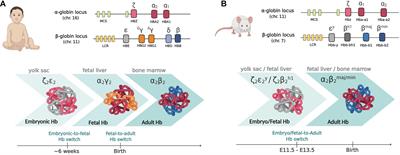EDITORIAL
Published on 18 Aug 2021
Editorial: Fetal/Embryonic Hematopoietic Progenitors and Their Impact on Adult Diseases
doi 10.3389/fcell.2021.732649
- 1,091 views
- 1 citation
28k
Total downloads
118k
Total views and downloads
Select the journal/section where you want your idea to be submitted:
EDITORIAL
Published on 18 Aug 2021
BRIEF RESEARCH REPORT
Published on 29 Jul 2021

PERSPECTIVE
Published on 21 May 2021

MINI REVIEW
Published on 14 May 2021

MINI REVIEW
Published on 12 May 2021

BRIEF RESEARCH REPORT
Published on 29 Apr 2021

MINI REVIEW
Published on 01 Apr 2021

REVIEW
Published on 23 Feb 2021

MINI REVIEW
Published on 18 Feb 2021

REVIEW
Published on 04 Feb 2021

REVIEW
Published on 22 Jan 2021

MINI REVIEW
Published on 12 Jan 2021


Frontiers in Genetics